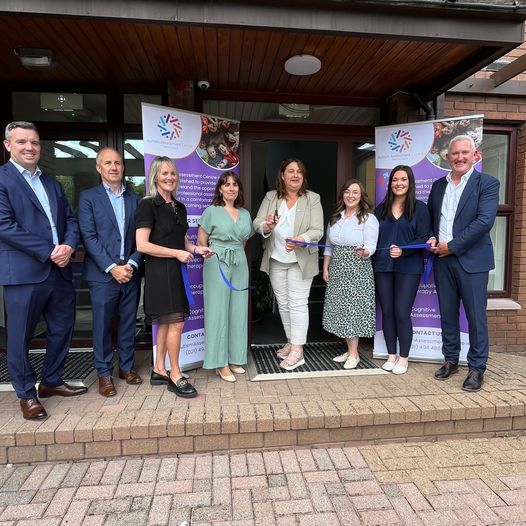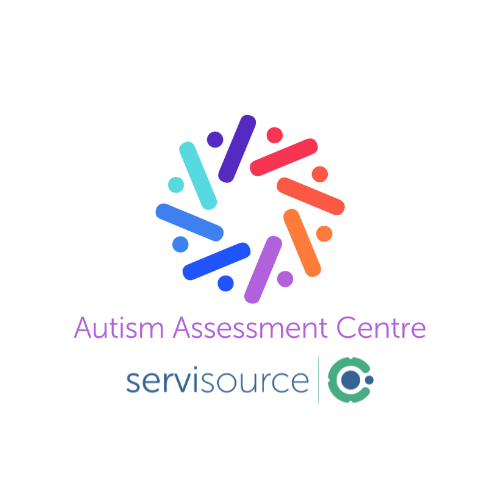The Launch of Our New Autism Assessment Centre Clinic in Sandyford
We are delighted to share that we had the official launch of our new Autism Assessment Centre clinic in Sandyford recently. Within the Servisource umbrella, our Autism Assessment Centre is dedicated to providing families across Ireland the opportunity to have a professional assessment of need in a comfortable and welcoming setting.
We were delighted that Minister Anne Rabbitte TD joined us for the grand reveal.

Our dedicated and specialised multi-disciplinary team have over 30-years-experience in the field and help provide clear, compassionate advice. We continue to expand our team of dedicated clinicians to meet growing demands, reduce waiting times and maintain our high standards of care. We collaborate closely with disability managers who adopt a child-centric approach, ensuring the best outcomes are reached.
Jennifer O’Neill, Specialist Services Manager in Autism Assessment Centre, has been with the company for 2 years and is delighted with this new centre. Jennifer has this to say:

We are all very excited about the future of our Autism Assessment Centres and the positive impact we will have on children and families all over Ireland. The official launch in Sandyford was filled with insightful conversations about our vision for the future.
We prioritise working with the HSE to address waiting lists while also offering private assessments. Our goal is to ensure that individuals with Autism and their families have timely access to the services they need. Our clinics in Sandyford, Dublin and Cork are spacious and conveniently located, making the assessment process as smooth as possible.
This marks a new chapter for us and allows us to showcase our commitment to growth, quality care and community support.
At all of our Autism Assessment Centres, when there is a question about your child’s functioning, we understand how important knowledge and trusted guidance can be. Whether there is a diagnosis or not, we will always take time to walk you through the process of getting help for your child. Our services include a multidisciplinary/ multi-factor assessment that results in a report and feedback session to guide you to the next steps.
We invite you to look at our client testimonials to see firsthand the impact we are having on families who have used the Autism Assessment Centre.

Autism Assessment Centre
Understanding: We strive to make the process as easy and comfortable as possible.
Empathy: We always listen to and support the children and families who come to us.
Professionalism: Our clinicians are experts in their field.
Quality: Our reports are written to meet HSE standards.

At our centres, you have peace of mind knowing that our teams are comprised of qualified occupational therapists, psychologists, and speech and language therapists who have the right skills and knowledge to provide assessments that consistently exceed your expectations. We understand your world and speak your language.
Our dedicated team supports your needs. Our skilled team provide you with clarity and feedback throughout your assessment journey and are here to answer any questions you may have.






















